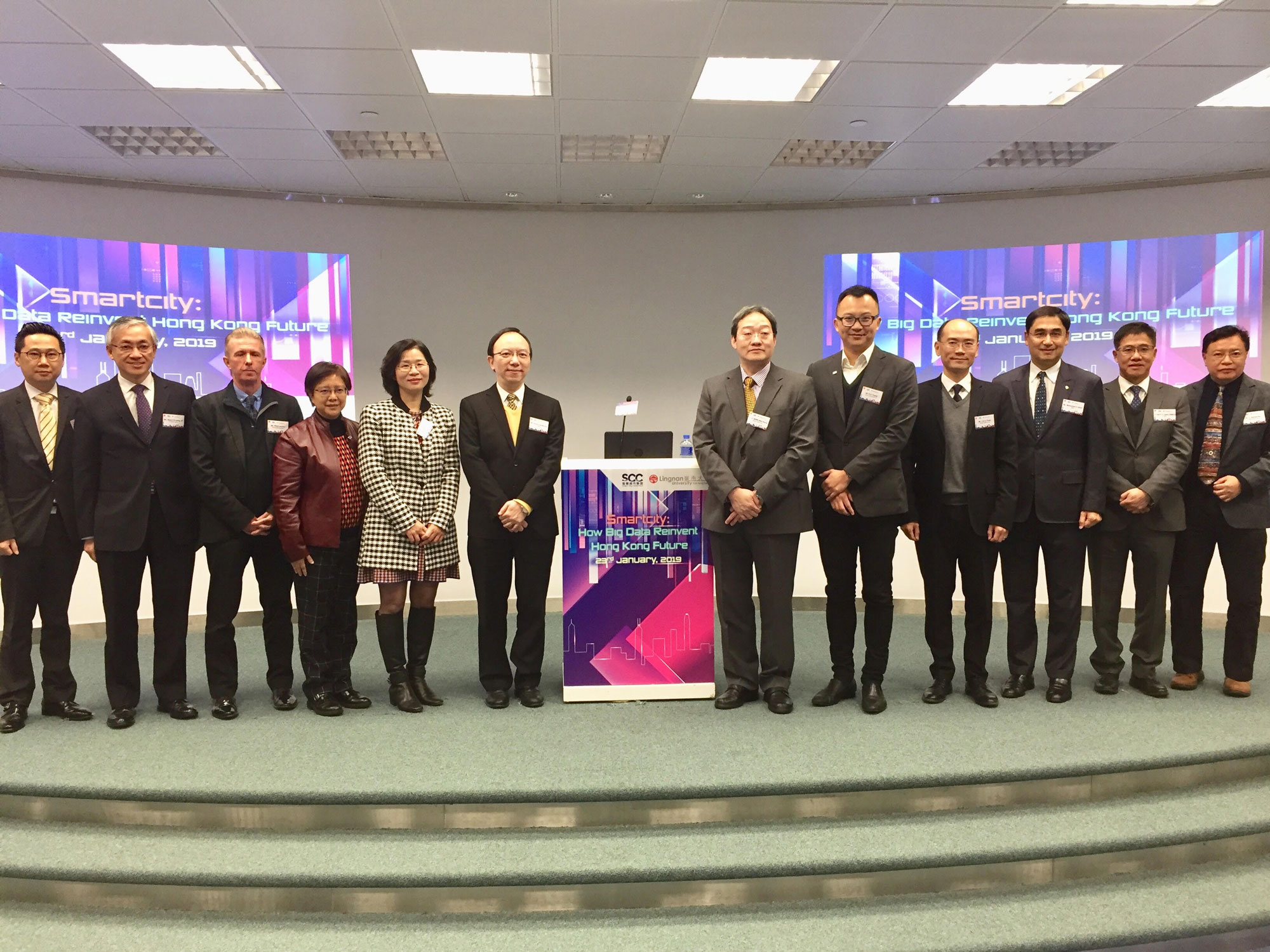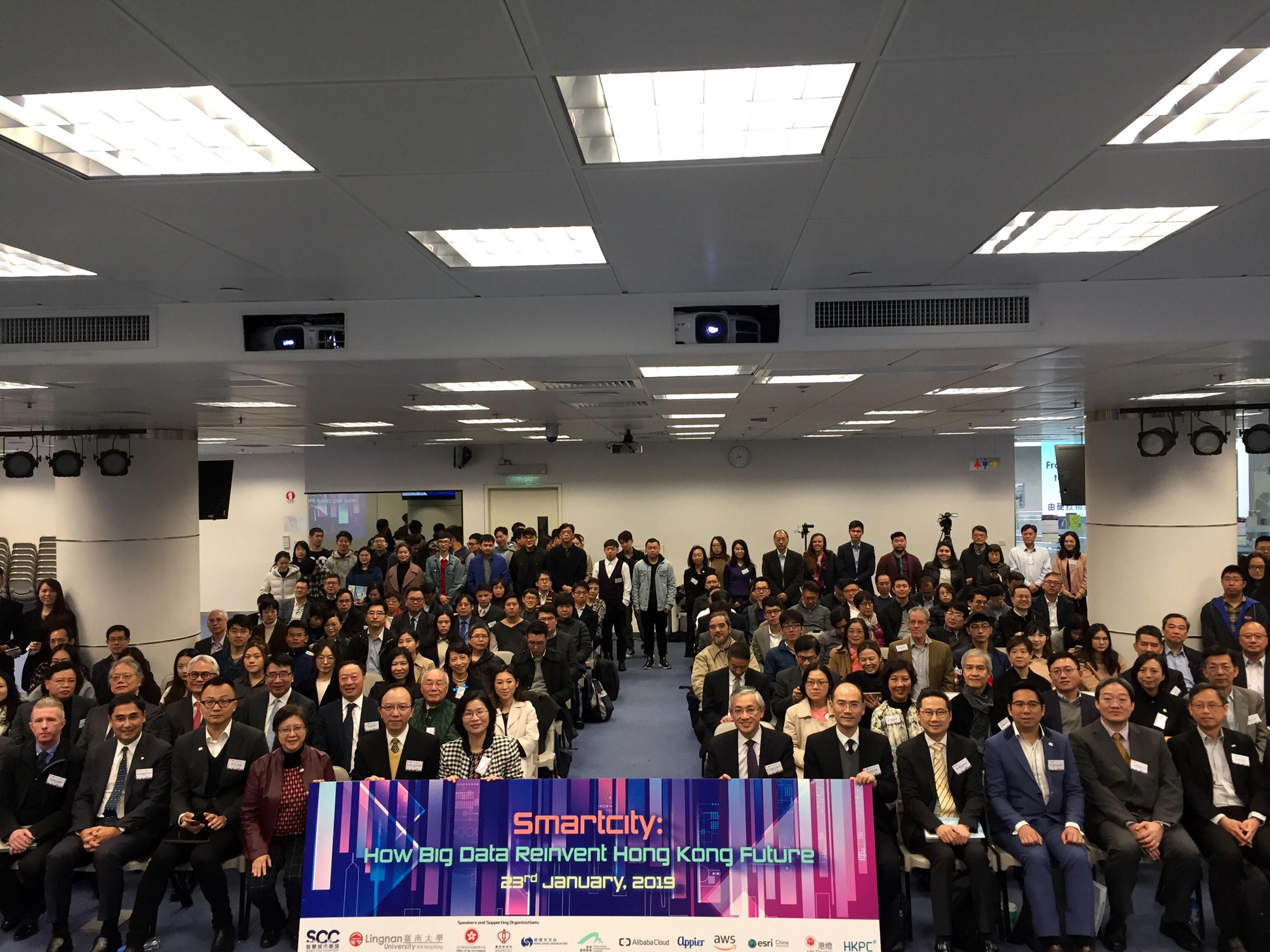Keynote Speech by Mr. Victor Lam, JP, Government Chief Information Officer, at the “Smartcity: How Big Data Reinvent Hong Kong Future Conference” (with photos)
Dr. Lam (Dr. Louisa Lam, Chief Information Officer and Librarian of Lingnan University), Eric (Mr. Eric Yeung, President of Smart City Consortium), Mohamed (Mr. Mohamed Din Butt, Executive Director of the Hong Kong Productivity Council), distinguished speakers, guests, ladies and gentlemen,
Good morning. It is my great pleasure to join you all at today’s Smart City Conference which explores on the use of big data to reinvent Hong Kong’s future. Organised by the Lingnan University in collaboration with the Smart City Consortium, the Conference provides an excellent platform for the academia and industry experts to share their experience and expertise on how big data technologies can be applied in solving our day-to-day city problems and promoting smart city development.
After decades of rapid development, cities around the world are now facing challenges on various fronts from livability to economic development. To surmount these challenges, many governments have already embed the vision for a smart city in improving citizens’ quality of living and enhancing overall city sustainability through innovation and technology (I&T). Amongst all, big data and artificial intelligence (AI) technologies are becoming the key to transforming an ordinary city into a smarter one.
The Hong Kong SAR Government is also striving to build Hong Kong into a world-class smart city. We released the Smart City Blueprint for Hong Kong in December 2017, mapping out some 70 initiatives in six major areas, namely Smart Mobility, Smart Living, Smart Environment, Smart People, Smart Government and Smart Economy, to address our city challenges by I&T.
The whole Government is pursuing vigorously with these smart city initiatives. For instance, the Government will launch an electronic identity (eID) in mid-2020 for use by Hong Kong residents as a single digital identity. All e-Government services and forms will adopt eID for user login and digital signature. To expedite the application of big data analytics in the Government, we are also developing a Big Data Analytics Platform slated for launch by the third quarter of 2020. We are also implementing a multi-functional smart lampposts pilot scheme with the first 50 smart lampposts expected to come into operation in Kwun Tong and the Kai Tak Development Area before mid-2019. These lampposts will enable real-time collection of city data, providing the raw materials for big data and AI applications.
Realising that data is the essential fuel for smart city development, the Government has been striving to open up more data for public consumption. Currently, the Government is disseminating over 3 300 datasets on the Public Sector Information (PSI) Portal (data.gov.hk) for free use by the public. To take our work to the next level, the Government has formulated a new Open Data Policy and related measures in September 2018 with a view to providing more ingredients for technology research, innovation and smart city development. Under the new policy, government bureaux and departments will endeavour to release their data for free public use via the PSI Portal, unless there are justifiable reasons (such as involvement of personal privacy). They should also explore with public and private organisations to come up with measures in opening up data with a high degree of public interest. In line with the new policy, some 80 government bureaux and departments have published their first annual open data plans in December 2018.
With the determined efforts by the Government, I am glad to let you know that over 650 new datasets will be opened up in machine-readable formats in 2019. The new datasets will cover different areas, including data related to the economy and livelihood, real-time transport and meteorological data, digital maps and geospatial data that can facilitate smart city development, and data that can enhance city management. To facilitate easy understanding of the open data by the general public, we will also launch a city data dashboard in 2019. To foster an ecosystem for sustainable development of open data, a dedicated feedback form has also been provided on the websites of bureaux and departments and the PSI Portal. We received a lot of useful comments from the public and would welcome more suggestions on the annual open data plans and applications of data to push ahead with smart city development.
Apart from providing data as the fuel for innovation, the Government also plays an innovator role to stimulate innovation in the area of public administration. We are proactively adopting new technologies like big data and AI for better public service delivery. Our office (OGCIO) will introduce AI and chatbot functions to the GovHK portal in 2019 to facilitate searching and access of e-Government services by the public. The Efficiency Office will also pilot the use of chatbot to handle 1823 public enquiries. In addition, we will set up a “Smart Government Innovation Lab” in April to facilitate trials and technology testing of smart government solutions. We will invite the industry to submit IT proposals and product suggestions for various public services. We anticipate that the Lab can help government departments address various new and persistent city challenges and make use of new innovative solutions to deliver public services more effectively.
A smart city can help bridge the digital divide among citizens and allow businesses to thrive and innovate. Building a smart city requires the concerted efforts by different stakeholders, including the public and private sectors, academia and our citizens. Let’s join hands to make Hong Kong a world-class smart city, allowing our citizens to enjoy enhanced public services and better quality of living. I wish you all a fruitful sharing at the Conference.
Thank you.
- ENDS -





